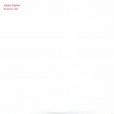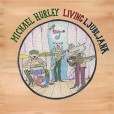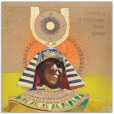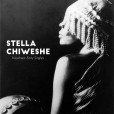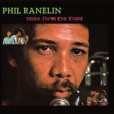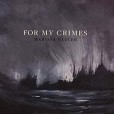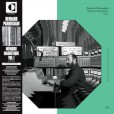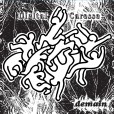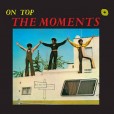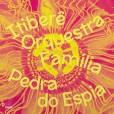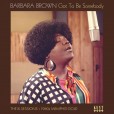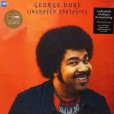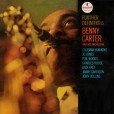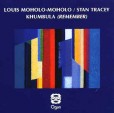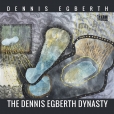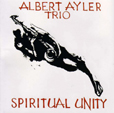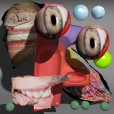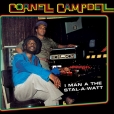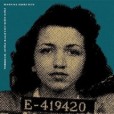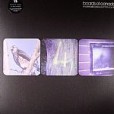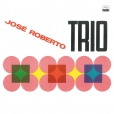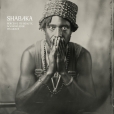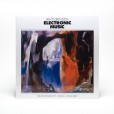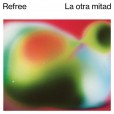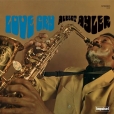Your basket is empty

This debut solo recording of the Hot Chip is a scrapbook of fifteen songs and instrumentals, made in planes, hotel rooms and at home, with bags of charm and inventiveness.
‘New and archival recordings all orbiting around the intergalactic soundscape introduced by Sun Ra. Ra’s own a capella I Don’t Believe in Love, recorded by Ra at home in Chicago during the 1950s, kicks the program off. This intimate private recording is followed by two intense new solo improvisations by French guitarist Raymond Boni, one acoustic and one electric, inspired by seeing the Arkestra preparing for a gig in Arles in 1976. The first side wraps up with Jason Adasiewicz’s riveting unaccompanied vibraphone workout on Ra’s Lanquidity and Where Pathways Meet. With a completely different take on Lanquidity, Side Two begins with four wild remixes by legendary Cologne techno pioneer Wolfgang Voigt, using layered samples from the LP. Hailing from the intersection of free jazz and out rock, Ken Vandermark’s band Spaceways Inc., with bassist Nate McBride and drummer Hamid Drake, continue with a Ra medley, in collaboration with the Italian band Zu. And where the program started in disbelief, love-skepticism, it concludes with Joe McPhee’s emphatic loving embrace on Cosmic Love, a classic tenor/synth sound-on-sound recording from 1970.’
With cover art by Emil Schult, who designed classic 1970s LPs for Kraftwerk. Very limited.
‘Phil Ranelin was a session trombonist for the likes of Steve Wonder before setting up the Tribe label with Wendell Harrison in Detroit… The title track is lusciously, greasily funky and stands in pretty stark contrast to the kind of airbrushed fusion that was in vogue at the time. Sounds From The Village is even better (and dirtier), showcasing Ranelin’s oily trombone gymnastics and a viciously fuzzed guitar solo… The obligatory Coltrane tribute He The One We All Knew is the kind of groove-based free-playing typical of Pharoah Sanders, though only really picks up when the band launch into post bop swing mode in the last six minutes or so… Beautiful stuff… Essential.’
New minings of his mountains of work for the screen — dozens of documentaries, shorts, features, animations — and for dance, stage and television.
A dreamily odd, Antillean blend of synths, flute and drum machines, featuring a children’s choir. Originally a tiny 1986 pressing in Guadeloupe, revived by the Diggers Digest crew.
The bees-knees in heart-broken, close-harmony, symphonic soul; up there with the very best of The Delfonics, The Stylistics and co. Nearly all ballads, with Billy Brown’s falsetto in devastating form, though that’s Harry Ray leading their all-time-classic To You With Love — as sampled by Dilla at the end of Donuts — in all the straight-up glory of its original setting.
The genre-slaying, polyharmonic, polyrhythmic ‘universal music’ of Hermeto Pascoal and his bassist Itibere Zwarg, performed in 2001 by a workshop comprising twenty-nine of Rio de Janeiro’s most exceptional young musicians.
An overlooked masterpiece amongst recent Brazilian recordings: invigorating and marvellous; warmly recommended.
Duets with Stan Tracey.
‘If you love the era in which electronic elements began to enter contemporary jazz, during the late ‘60s and ‘70s, you’ll LOVE what Sweden’s Dennis Egberth has been creating.
‘A blend of cosmic composition and chilled ambient and electronic sounds, with floating, irresistible, melodic bass lines, and long, modal build-ups that come alive with exploding lyricism.
‘The drummer is joined by Fredrik Ljungkvist on tenor sax and clarinet, Niklas Barnö on trumpet, Alexander Zethson on Wurlitzer, Linus Hillborg on electronics, and double bassist Joe Williamson.’
‘I want to play songs like I used to sing when I was real small.’
This fiftieth anniversary CD includes as a bonus the track briefly substituted for Spirits on an early vinyl edition. It is the same tune known as Vibrations on the album of that title on Arista/Freedom (aka Ghosts when issued on Debut) and as ‘[tune Q]2’ on the Revenant box set Holy Ghost.
‘One of the most provocative ongoing bodies of work by any American musician’ (Pitchfork). ‘Astonishing work of history, memory and sensed experience. Confirms Roberts’ place as one of the most important living artists in any field’ (The Quietus).
With Hannah Marcus (guitars, fiddle, accordion), percussionist Ryan Sawyer, bassist Nicolas Caloia, and Sam Shalabi on guitar and oud — plus trombonist Steve Swell and vibraphonist Ryan White guesting. ‘Memphis unspools as a continuous work of 21st century liberation music, oscillating between meditative incantatory explorations, raucous melodic themes, and unbridled free-improv suites, quoting archly and ecstatically from various folk traditions along the way.’
A year after Os Tatuís, José Bertrami returned to the studio, this time stripping back to a trio. Again featuring Claudio Henrique Bertrami on double bass, and with Jovito Coluna on drums, the José Roberto Trio recorded their one and only album in 1966, featuring compositions by Baden Powell, Manfredo Fest, and Marcos Valle. The LP also featured three of Betrami’s own compositions: the wistful Lilos Watts, the groovy Kebar, and the dazzling Talhuama.
Another jewel from the golden age of the Brazilian bossa jazz trio — Bossa Três, Milton Banana Trio, Tenório Jr,, Bertrami’s own Bossa Jazz Trio — ushered in by the Tamba Trio, and nourished along the way by jazz greats from Nat King Cole to Bill Evans,
Three rare recordings by this pioneer of early Danish electronic music — compelling, often dazzling, but focussed and without bombast.
‘Electronic Music was originally released in 1987 as a retrospective album, collecting three of Bent Lorentzen’s electronic works from the 70s. These clearly demonstrate Lorentzen’s close familiarity with his equipment and his great technical proficiency regarding the creation and manipulation of all sorts of electronic and recorded acoustic sounds — typically in the form of speed changes, reversed sounds, and reverb and filter effects. The music is often quite dramatic with distinct narratives and multiple dynamic layers of sound, but still with a clear sense of disposition and restraint, possibly stemming from Lorentzen’s experience with classical instrumentation and orchestration.’
Fastidiously prepared and stylishly presented by IDL, as per.
‘Verve By Request.’
